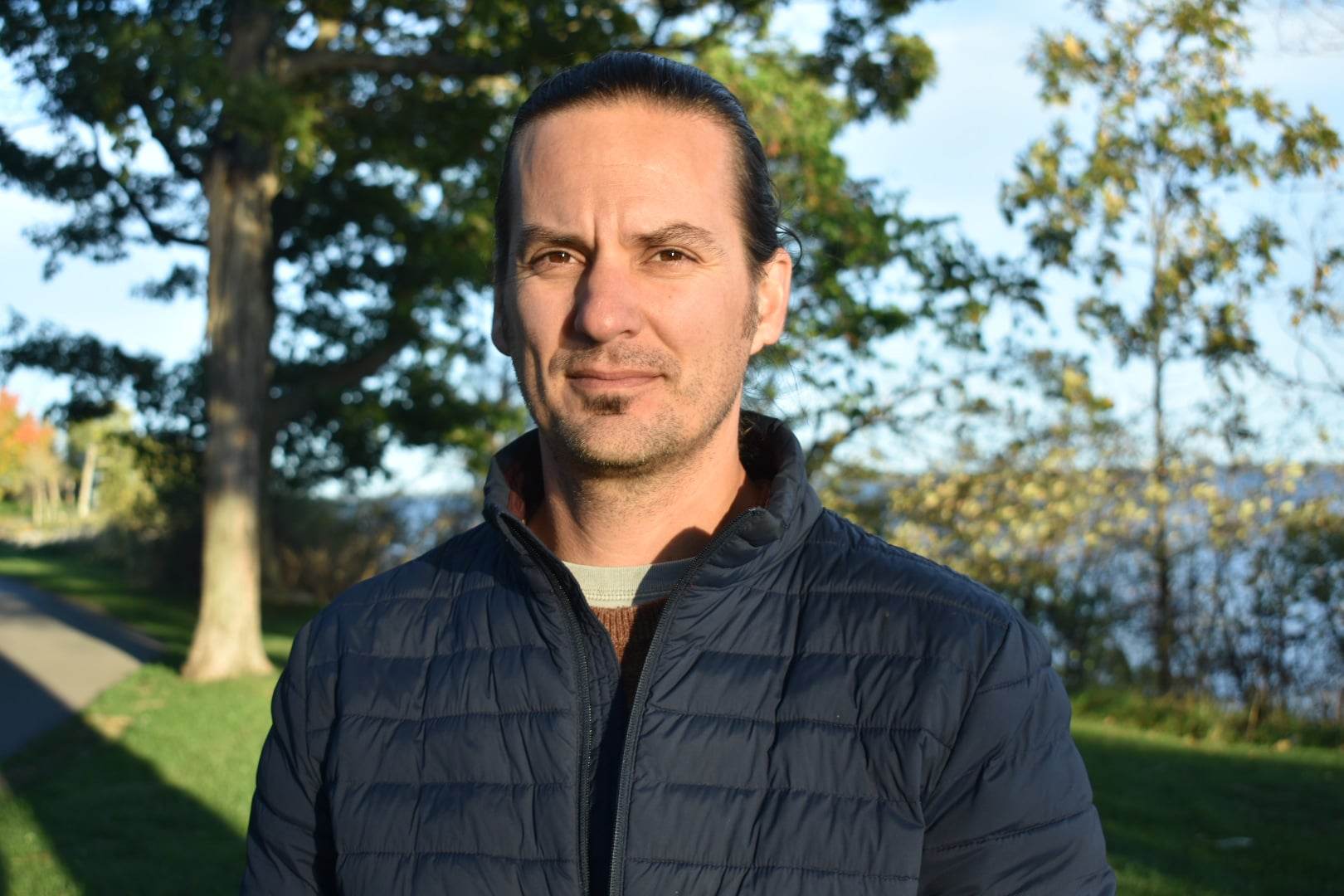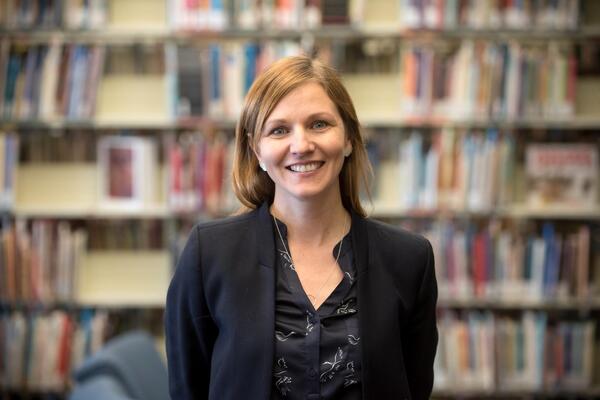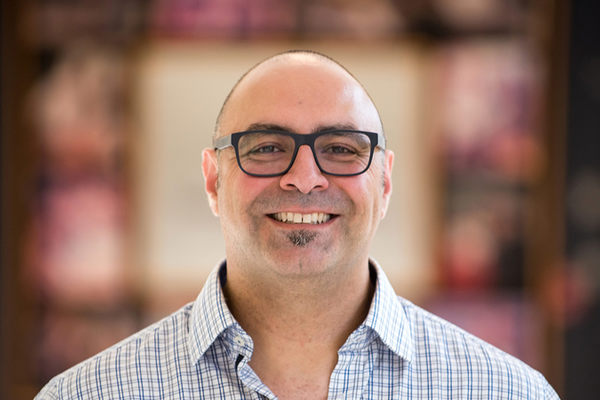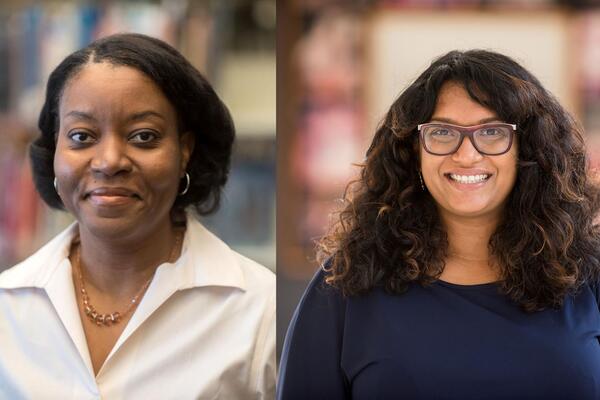 Teaching special education preschool and elementary students in the early years of his career gave Dr. Jordan Shurr, Associate Professor of Special Education at the Faculty of Education, a first-hand perspective on the gaps that exist in supporting educators of students with autism and other developmental needs.
Teaching special education preschool and elementary students in the early years of his career gave Dr. Jordan Shurr, Associate Professor of Special Education at the Faculty of Education, a first-hand perspective on the gaps that exist in supporting educators of students with autism and other developmental needs.
He spent much of his time adapting curricula to meet the needs of his students, and a lot of his day-to-day work was managerial in nature even though his training was not.
Jordan now leads the Autism and Developmental Disabilities (ADD*Ed) Research Group focused on research, innovation, and engagement related to educating students with autism and other developmental disabilities in Ontario.
Along with his team of graduate and undergraduate students, Jordan works with schools to help grow their understanding of the dignity issues around exclusion as well as available interventions and how to make learning more inclusive – often with easy adjustments.
“Several different organizations focus on different aspects of autism and intellectual disability, but there's not really a professional home for teachers of students with these special needs. I started ADD*Ed to fill that gap,” said Jordan. “This is my passion – to have research that is practical and useful and not only adding to the research field but also the practitioner field.”
Students with autism or developmental disabilities represent less than two percent of the school-aged population yet require specific help to thrive.
“When working with a small population of students with significant needs, oftentimes that world can become really small,” Jordan said. “And when your world becomes really small, you might miss out on innovation and great sources of knowledge.”
Most special education teachers, Jordan explained, are having to extensively adapt curriculum to make learning accessible and applicable to their students. To help, ADD*Ed’s website hosts a growing library of resource guides on diverse topics including assistive technology, peer tutoring, minimizing background noise and building in more frequent breaks to help students rest between focused tasks. Each guide packs in practical how-to tips and lists professional resources for more information.
The website also houses an online forum, webinars, and sign-up for monthly virtual office hours, creating space for special education teachers to ask questions, learn from their peers, and build community.
“I want a teacher from northern Ontario talking to a teacher in the east,” Jordan said. “I want the teachers to be able to see themselves as knowledge keepers and knowledge sharers to help them appreciate the scope of the practice and to sharpen and challenge each other.”
“We have students at the heart of our work, and we can never really do enough for our students,” Jordan added. “That's a really good quality of teachers that we are never satisfied with the amount of effort and energy we can put into our students because there's always more you can do and even more so for students with extensive support needs.”
Learning for all
There is a growing understanding of the capacity for learning of students with special needs as the research in the field of special education also grows.
“Every year we're learning that students with significant support needs can do more than we thought the year before, and we're also confronted with the need to make sure that we have a supportive environment,” Jordan said. “Students have a lot of capacity that's under-accessed because of our difficulty with appropriate interventions and innovations.”
An important aspect of creating an inclusive learning environment is accessible curricula. Universal design for learning (UDL) is a proactive approach where teachers, early in their planning, aim to create content that accommodates many different learning needs. This approach minimizes barriers and saves having to reactively adapt content later because UDL ensures classroom representation, engagement, action, and expression take multiple forms. UDL means teaching concepts through different types of media (video, print, auditory, etc.) as well as providing students with more than one way of learning and communicating what they have learned (such as an exam, or performing a story).
To help teach UDL to pre-teacher candidates, Jordan is currently collecting lesson plans from practicing Ontario teachers as part of the UDL Lesson Plan Partnership Project. Pre-teacher candidates with the Faculty of Education review the lesson plans for UDL components to provide feedback on each plan’s strengths and provide three to five suggestions for additional UDL elements.
“My students are a little bit nervous about it because they're talking to practicing teachers and they're having to have some authority and expertise in UDL,” said Jordan. “Their assignments aren’t just for marks – they are actually helping improve classroom learning.”
The partnership project also serves to strengthen university-school relationships, providing pre-teachers with opportunities to contribute to the field and gain a more complete picture of the complexities of teaching. Partnerships also benefit practicing teachers by providing opportunities for them to give back and learn from their soon-to-be colleagues.
“Universities have to do a lot to gain the trust of teachers. By their nature and their roles and history there's often a divide between the universities and grade schools where researchers are perceived to do theoretical research and practitioners do daily practice,” Jordan said. “They can be much closer together, and this project is one of those bridges.”
Next up, Jordan will launch a study looking at teachers’ beliefs around their preparedness, examining how well trained and equipped they feel to teach special education, how much they believe in their abilities and how supported they feel in their workplace. He’s interested in learning where teachers obtain their information and what trusted resources would be most useful to them – findings that will further support the development and reach of ADD*Ed’s content.
Support projects like this by contributing to our Community Initiatives Fund.


